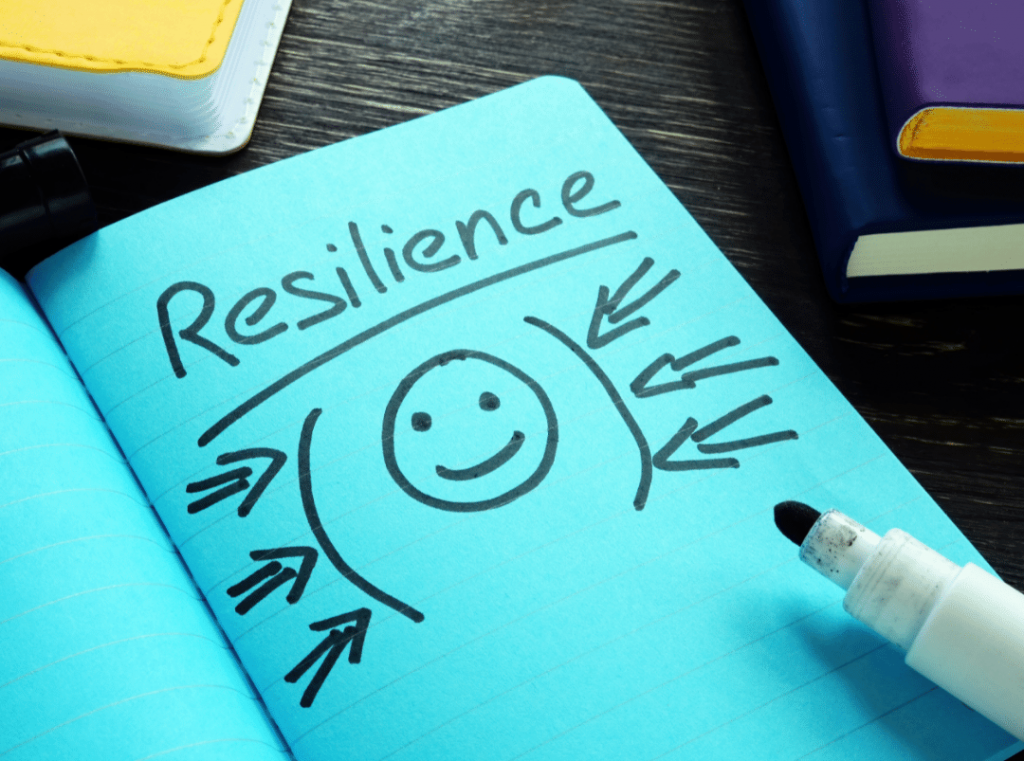Education & Career Trends: August 4, 2022
Curated by the Knowledge Team of ICS Career GPS

Content Credit:
- Article published on health.clevelandclinic.org. Original article link.
Researchers define psychological resilience as the ability to mentally cope with or adapt to uncertainty, challenges, and adversity. It’s always good to learn how to build resilience emotionally and mentally. Building mental resilience is important to avoid mental health issues, and to live life not just to get by but to live it to the fullest. Working on your mental strength can lead to greater life satisfaction and help protect against future mental health issues.
Our mental strength is tested all the time. You may lose your job or might be dealing with the loss of a loved one.
“When we talk about mental strength, what we are actually talking about is emotional resiliency, which is the ability to cope with stress and challenges in a healthy way.”
Natacha Duke, registered psychotherapist.
Your mental strength can be built up over time. The key is to develop healthy coping strategies, practise self-care and foster a compassionate inner dialogue.
However, mental strength or resiliency is different from mental health.
When some people hear the terms mental strength or resiliency, they may think it means the absence of mental illness, but that is not the case. Many people with mental illness have learned to manage their condition healthily and have cultivated emotional resilience. Similarly, someone can have no history of mental illness but have both poor mental health and emotional resilience.
Here are some strategies on how to build your mental strength and bounce back from adversity:
1. Acknowledge your feelings
- Make sure you stop and ask yourself how you’re doing throughout the day.
- Understand how you are feeling, are you feeling anxious? Upset? Happy?
- To be able to check in with yourself and name your feelings is important as this mental check-in makes you aware of what you need to start giving yourself.
2. Practise being self-compassionate
- If you are worried you offended someone or weren’t as patient as you wanted to be, try practising self-compassion.
- The goal is to quiet your inner critic and be kind and gentle with yourself, the way you would a friend.
- Practise talking to yourself, not in a critical way, but in the way that you would talk to someone who you care about and when they are facing a problem.
- Learn to extend yourself that same love and compassion.
3. Assess your challenge
- Faced with a challenge? Take a deep breath and ask yourself if this is a true catastrophe or if is it an inconvenience.
- We often interpret inconveniences as catastrophes, according to Natacha Duke.
- Making that distinction can be helpful.
- Because if it’s an inconvenience, then you can start to problem-solve and brainstorm.
4. Take small steps toward what you want to avoid
- When you’re anxious or depressed, you tend to avoid things you don’t want to do.
- This commonly leads you to procrastinate on important tasks.
- But instead of avoiding the situation or task altogether, work on taking small steps toward it.
- “Practising taking small steps will not only help to alleviate anxiety, but it can also improve your self-esteem and mood,” notes Duke.
5. Work on mindfulness
- During those moments when you are stressed or feeling anxious, it’s a good idea to remember and practise mindfulness.
- Give yourself the space to breathe and think about your reactions.
- Learn strategies that help you be more present.
- Learning to breathe, and be in the moment through your breath, can be very helpful.
6. Externalise how you feel
- If something is bothering you, don’t keep your feelings bottled up.
- Work on vocalising those feelings through assertive communication.
- Whether that is through journaling, therapy or talking to your best friend, the practise of naming your feelings and communicating them effectively, as well as having a supportive and empowering social circle, is important.
7. Maintain a healthy lifestyle
- All those things you can do to lead a healthy life — exercise, a well-balanced diet and sleep — can also help when it comes to your emotional resilience.
- Having a proper sleep schedule plays a major role in building mental strength or emotional resilience.
- Limiting your social media use and news consumption allows your mind to declutter and relax.
…
Have you checked out yesterday’s blog yet?
Career tips for students interested in HR
(Disclaimer: The opinions expressed in the article mentioned above are those of the author(s). They do not purport to reflect the opinions or views of ICS Career GPS or its staff.)
Like this post? For more such helpful articles, click on the button below and subscribe FREE to our blog.




One Reply to “How To Build Mental Strength and Resilience”